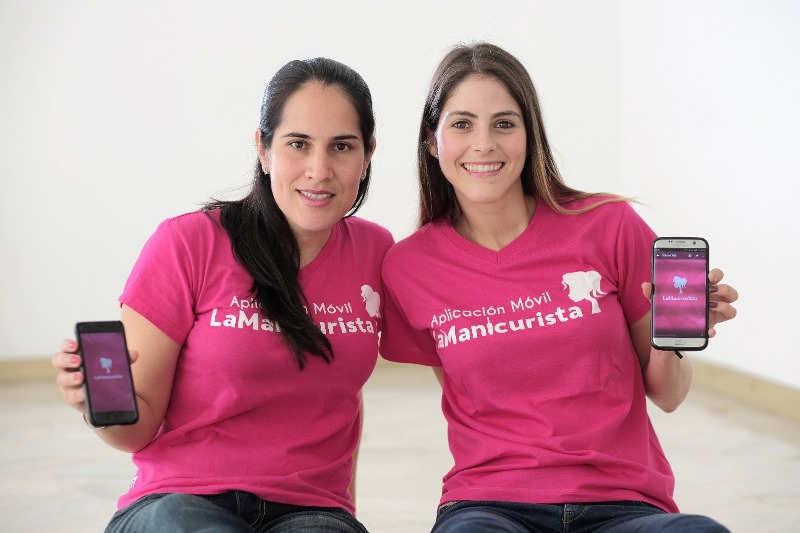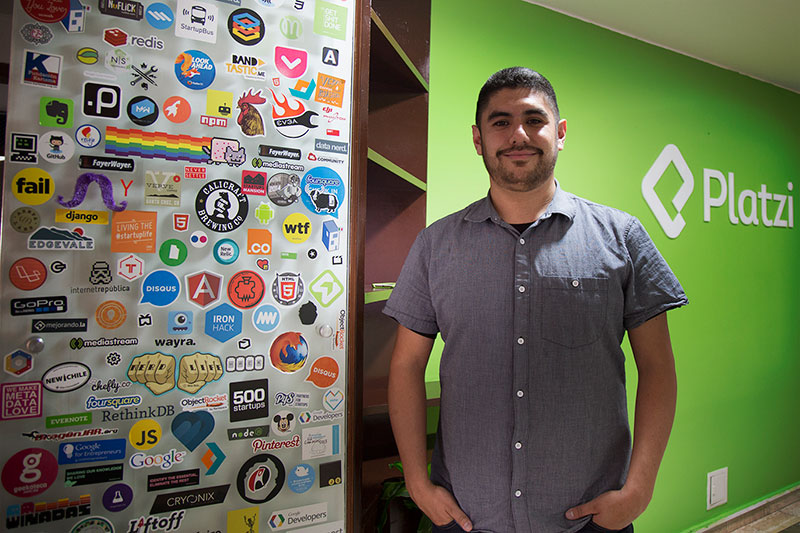Through my Crossing Borders podcast, I’ve had the opportunity to interview dozens of Latin America’s most inspiring entrepreneurs. In this special episode, I decided to turn the tables to bring a former guest, GroupRaise CEO Devin Baptiste, back to the show to ask me about my first days as an entrepreneur, and how that eventually brought me to Chile.
I sat down with Devin, a close colleague and friend, to delve into how ticket reselling, and helping people plan for their deaths, brought me to Latin America and put me on a path to help found Magma Partners. Don’t worry, we’ll be back to our regularly scheduled guests next week!
Refereeing soccer games at age 12 was the first step to becoming an entrepreneur.
Nathan Lustig made his first money as a twelve-year-old soccer referee back home in Wisconsin. As an independent contractor, he enjoyed planning a game schedule and being in control of his income, most of which he saved.
Sports become a common theme in Nathan’s journey to becoming an entrepreneur, as he became well-versed in the market of buying and selling tickets as a long-time sports fan. In many ways, his love of sports and attending sports games foreshadowed his first venture, a college ticket-selling marketplace called ExchangeHut.
Companies are sold, they are not bought.
Nathan got into ticket selling when he lost the lottery for season tickets at University of Wisconsin in his freshman year. As he looked for ways to buy tickets for himself, friends lined up to ask for help with the same problem.
A year later, Nathan had purchased ExchangeHut alongside a childhood friend, using some of the funds he saved reffing soccer. Over the course of two years, they grew the platform from 1000 users on one campus, to nearly 250K users on eight university campuses. Getting acquired was a deliberate process. Neither Nathan nor his partner wanted to operate ExchangeHut after graduation, so they researched and contacted potential buyers, and were eventually acquired by the ad network that operated on the site.
Nathan emphasizes that companies looking to be acquired should be on the hunt for interested buyers. Few acquisitions come from companies that were shopping around to buy and find their acquisition target from a day of Googling.
Selling to morticians and how Nathan ended up in Chile.
After selling ExchangeHut, Nathan moved onto his next challenge, as co-founder of Entrustet, a service that helped families access, transfer, and delete online accounts when someone died. While they got great PR because the idea was just so novel, B2C marketing was near impossible. Very few people wanted to think about or plan for their death, except, surprisingly, in Japan and Mexico.
As they pivoted, Nathan and his partner stumbled across an article about Start-Up Chile in Forbes and applied. They became a part of the program’s first class. The ecosystem in Chile was in its nascent stages at that time, but even then it was evident that something big was brewing. Nathan sold Entrustet after Start-Up Chile and made his way back to Latin America to work on his Spanish.
The Magma Partners investment thesis
After a stint as a Spanish language marketer, and as a university professor, Nathan settled into mentoring startups in Chile. When he met Francisco Saenz in 2013, they realized an opportunity to make an outsize impact in Latin America’s entrepreneurship ecosystem through a private fund that would combine capital investment, mentorship, and US best practices, giving Latin American startups access to support of the kind found in Silicon Valley.
Francisco and Nathan founded Magma Partners with a US$2.5M fund they invested in pre-seed and seed stage companies that either sold to businesses in Latin America, or to a US audience. A lot of people thought their investment thesis was crazy, that Latin America was too risky an investment. Yet Magma I has already seen their original investment reach US$7.5M; their portfolio has also generated over 350 jobs.
The 3 Mega Trends Happening in Latin America now.
Devin and Nathan closed out their conversation looking forward at the future of tech in Latin America, just weeks after the announcement of Magma II, a US$15M fund to be invested under the same thesis.
Nathan sees three huge trends in the Latin American startup ecosystem, with Magma Partners riding the wave of all three.
- Latin America’s tech scene is maturing at a very high rate and will be producing many highly profitable businesses over the next decade.
- Chinese businesses and investors are starting to look into investments in Latin America. Magma Partners also announced the opening of the first Sino-Latin American accelerator to help Chinese and Latin American entrepreneurs work together.
- The US is taking notice of Latin America.
Nathan summed up our conversation explaining the long-term impact of Magma Partners on the startup ecosystem. “Magma is a multi-decade project,” says Nathan, “and we want to be a core building block of the ecosystem to continue building what other amazing funds in Argentina, Brazil, and Mexico have done.”
Check out the rest of the episode to hear Nathan’s story in detail and learn how he went from soccer referee to Managing Partner at Chile’s first private venture capital fund!
Outline of This Episode:
[1:16] Devin Baptiste introduces Nathan Lustig
[3:00] Starting the entrepreneurship journey as a soccer referee
[8:10] Buying his first business at age 19 with a childhood friend
[12:50] Growing your user base from 1000 to 250k within 2 years
[21:10] Buying and selling tickets shows you what people’s true character is
[23:40] Companies are sold, they are not bought
[26:35] How do you get a company to sit down and talk acquisition?
[34:50] Deciding not to compete against Facebook Marketplace was a mistake
[36:15] Branching out: how did you get into your next company?
[40:30] How do you sell a product that people use after they die?
[42:43] How many people on Facebook die in a year?
[50:37] Joining the first class of Start-Up Chile with no expectations
[58:40] Giving a speech to Sebastian Piñera, President of Chile
[59:23] Why Magma Partners and why Chile?
[1:06:10] Do we want to be in the death industry for the next 5-7 years?
[1:11:30] Learning Spanish in Chile as a Spanish language content writer
[1:15:41] What values inspired the Magma Partners investment thesis?
[1:21:44] Has your investment thesis been validated?
[1:25:45] US reactions to a Latin American VC fund
[1:30:33] Magma II – the investment thesis is playing out
[1:32:20] Where is the China-Latin America business relationship going?
[1:36:16] Three mega trends that Magma Partners is excited about
[1:39:02] Lessons learned in Fund I to be applied to Fund II
[1:44:30] Thanks to Start-Up Chile for bringing so many great entrepreneurs to Latin America
Resources and People Mentioned:
Connect With Nathan



